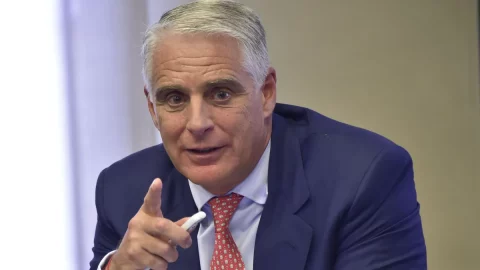The coronavirus in Africa it's a giant black hole that the Western world and Europe don't care much about. It is above all China, which is omnipresent in Africa, in charge of it, as well as of course the heroic volunteers of the NGOs. But, surprisingly, new solutions also come from the world of African hi-tech, full of startups that are born and disappear continuously in the most advanced fields of information technology. Companies active not only in e-commerce and finance (almost everyone who has a smartphone only makes digital payments), but also in healthcare.
The WHO has communicated an unlikely number of infected Africans, around 640, but the figure could be dramatically updated shortly. Jumia, the only African startup listed on the NYSE in New York, considered the Amazon of the continent (year of foundation 2013, more than 1 billion euros in turnover in 2019), has signed a partnership with Englishman Reckitt Benckiser for distribution at an affordable price of pharmaceutical and sanitation products such as soaps, sanitizers and liquid hand products. Jumia has decided to waive its commissions precisely to speed up the purchase and distribution of large quantities of products thanks to low costs. While the English company bears the transport costs in the countries currently involved in the project, namely Algeria, Egypt, Ghana, Kenya, Morocco, Nigeria, South Africa and Uganda.
FROM ALIBABA MILLIONAIRE DONATIONS
Meanwhile in Asia the founder of Alibaba, Jack Ma, returned to the track on March 16, coming out of retirement and through his personal foundation is sending 1,1 million detection kits, 6 million protective masks and many more to Africa supplies. Everything will soon arrive in Addis Ababa, the capital of Ethiopia, which is part of eWTP, Alibaba's world trade platform which will distribute the products in as many as 54 countries on the continent.
But what is surprising is that many African startups operating in the most advanced sectors are making various fundamental services available free of charge to doctors, consumers, governments, companies and institutions, namely lines, marketplaces, transport and any use of telecommunications networks for information exchange and research.
The Nigerian incubator Co-Creation Hub intends to finance projects aimed at correctly informing and educating consumers, at enhancing the local production of health equipment and local food products (instead of continuing to import very expensive products from abroad) and at supporting infected people and weaker. An initiative that is also spreading outside Nigeria, urging clear communication that distances superstitions and fake news, but also stimulating the production structure of African countries in the field of first aid medical equipment.
FAST GROWTH OF E-COMMERCE
E-commerce in Africa is often managing to obtain satisfactory turnovers, since in some countries the population has realized through the internet and the mass media that the only remedy against the coronavirus is to retire at home. founa.com, for example, the first online supermarket in Tunisia, in the last ten days quadrupled its revenue.
The real problem at the origin of any intervention program is that the information on the numbers of infected people in the 54 African countries is not very reliable. Instead, it is possible to indicate, thanks to the calculations of the scientific journal The Lancet and Insee (the French Istat), which are the most exposed countries on the basis of some objective parameters. Paradoxically, these are the states best prepared: Algeria, Egypt and South Africa. These countries have for years had the highest number of contacts via airlines with the Chinese provinces most affected by the coronavirus, but they are also the ones with the best results in terms of Spar and IDVI, according to the WHO.
The first acronym (State Party self-Assessment annual Reporting tool) represents a parameter calculated on the basis of a mandatory annual declaration that each country must certify to the WHO and describes the ability of health facilities to deal with a viral epidemic according to an index ranging from 1 to 100.
The IDVI (Infectious Disease Vulnerability Index) instead brings together the objective parameters on healthcare infrastructures, from demography to political stability (also in this case the ranking ranges from 0 to 100).





